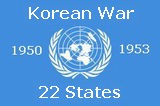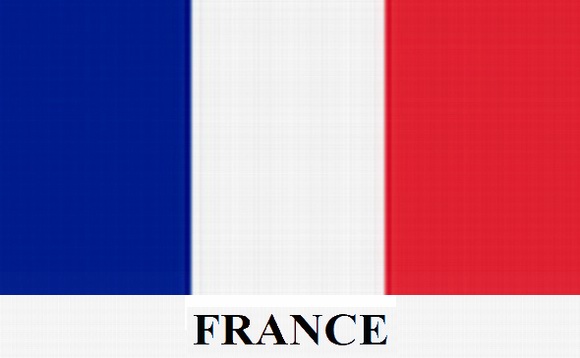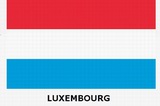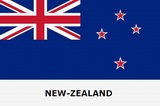1955
January 26: Jacques Soustelle was appointed Governor General of Algeria.
March 31: the state of emergency was proclaimed in Aurès and Grande Kabilie. Censorship was established locally.
April 18-24: the FLN representatives participated in Bandung at the conference of the non-aligned countries of the Third World. All delegations expressed their solidarity with the rebellion in Algeria.
May 14: The Warsaw Pact was signed during the Cold War as a collective defense treaty between Soviet Union and seven satellite states of Central and Eastern Europe. In fact, the Warsaw Pact was created in reaction to the integration of West Germany into NATO.
May 16: the number of French army soldiers in Algeria was increased to 100,000 men. The UN General Assembly voted the inclusion of the Algerian issue on its agenda.
August 20: huge massacres in the Philippeville area. The uprising of Muslims was severely repressed, causing a hundred deaths.
August 30: Due to the extension of the armed rebellion, the state of emergency was proclaimed throughout Algeria.
September 11: in Paris, first demonstration of the draftees who refused to go to Algeria.
The Algeria issue was on the agenda at the 10th session of the UN General Assembly. Retailers were on strike in Algiers on the eve of the opening of the UN session.
November: creation in Algeria of military civil affairs coded Sections Administratives Spécialisées (SAS for short) i.e Specialized Administrative Sections.
December 29: L’Express magazine edited photos of an illegal execution of an Algerian rebel by a French auxiliary Gendarme, in August 1955.
1956
January 20: violent demonstrations in Tlemcen.
February 2: Jacques Soustelle was replaced by Robert Lacoste.
February 6: Guy Mollet, President of the Council (sort of PM), was welcomed in Algiers by a hostile demonstration of Europeans living in Algeria. He declared that "France must stay in Algeria and will stay there".
March 2: independence of Morocco. France recognized the end of the protectorate established on the Sultanate of Morocco in 1912. This was the conclusion of the conference opened in Aix-les-Bains on August 22, 1955 on the initiative of the President of the Council, Edgard Faure and his Minister of Foreign Affairs, Antoine Pinay.
March 9: demonstrations of Algerians in Paris against the vote of special emergency powers.
March 11: the National Assembly voted the special emergency powers for the government of Guy Mollet.
March 20: independence of Tunisia. France put an end to its protectorate over Tunisia. Independence of Tunisia was demanded by the Destour party founded in 1920 by Sheikh Talhabi and by the Neo-Destour party founded in 1934 by Habib Bourguiba. After the long regency of Tunisia under the Ottoman rule, Tunisia was passed under French protectorate on May 12, 1881 with the signing of the Treaty of Bardo.
April 11: military national service was increased to a 27 month period. 70,000 "draftees" of 1953 were called back to the armed forces.
April 22: Pierre Mendes-France, Minister of State, without portfolio, resigned in disagreement with the Algerian policy of the government.
May 18: In Algeria, 19 draftees, who had only been in place for a week, were massacred by rebels.
May 19: The General Union of Muslim Students of Algeria (UGEMA) launched a strike for an unlimited period, and invited all students and intellectuals to join the FLN and the National Liberation Army (NLA).
July 5th: general strike of Algerians living in France and in the department of Algiers.
August 20: the FLN congress at Soummam (Kabylie) defined the objectives of war, set up the conditions of the cease-fire, peace negotiations and named the FLN as the only representative organisation of the Algerian people.
September: the military manpower was increased to 600,000 men in Algeria.
October 22: embezzlement by the French authorities of a DC-3 Royal Air Maroc which carried several leaders of the FLN from Rabat to Tunis. Ben Bella, Ait Ahmed, Boudiaf, Khider and Lacheraf were taken prisoners. In retaliation, dozens of French were killed in Meknes (Morocco).
October 23 to November 10: Budapest insurrection for freedom was repressed by Soviet forces. The Warsaw Pact was not effective.
November 1st: on the occasion of the second anniversary of the rebellion, a general strike was massively followed in Algiers. Increased terrorism actions took place in Algeria. The first bombings were perpetrated in Algiers by the FLN. In retaliation, French civilians in Algiers lynched Algerian Arabs.
November 2-5: Suez expedition. France and Britain attacked Egypt, bombed its airports and Suez Canal facilities after Israel's attack on Egypt.
November 15: the UN once again placed the Algerian issue on its agenda.
December 1-14: General Raoul Salan was appointed Commander-in-Chief in Algeria.
December 5: French government dissolved local councils and municipalities in Algeria.
December 27: assassination of Amédée Froger, chairman of the association of the mayors of Algeria.
1957
January 7th: the 10th airborne division of General Massu got the mission to maintain peace and order in Algiers. It was the beginning of the battle of Algiers.
January - February: an upsurge in bombings against civilians and soldiers in Algiers. More than 30 dead and a hundred wounded.
End of February: many leaders of the FLN were arrested.
February 26: The French communist daily newspaper L'Humanité published the letter of a French soldier who denounced the use of torture by the French army in Algeria. A month later, General Jacques de la Bollardière asked to be relieved from his command in Algeria to protest against torture.
March: Larbi Ben M'hidi, the founder of the FLN, was killed by the paratroopers of Colonel Bigeard after being tortured.
April 13: Djamila Bouhired, accused of laying a bomb in a coffee shop near the University of Algiers, was arrested. Tortured, she signed confessions. Her French lawyer, Gisèle Halimi, received the support of French intellectuals including Simone de Beauvoir and Françoise Sagan.
May 28: massacre of civilian population of douar Melouza by the FLN. The result: 301 dead and 14 wounded all being muslim arab algerians.
June 11: Arrest of Maurice Audin, assistant teacher of the University of Sciences in Algiers.
September 20: the UN once again placed the Algerian issue on its agenda.
November 29: The National Assembly voted the framework law and the electoral law of Algeria.
December: fierce fighting in the East-Constantine area. Assassination of Abane Ramdan, main organizer of the Soummam Congress.
1958
January-May: Battle of East-Constantine on Morice Line.
January 7: start of drilling and exploitation of Saharan oil.
February 7: A fighter plane was fired at from Sakh city on Tunisia border.
February 8: the French air force in Constantine decided, with the agreement of General Salan, but without the French government green light, the bombing of Sakhiet-Sidi-Youssef. The air operation killed 70 people, including 21 children from a school.
April 15: resignation of the Gaillard government. Ministerial crisis in France.
April 26: demonstrations in Algiers in favor of French Algeria. 30,000 Algerians demand a government of public safety after the fall of the Gaillard government.
May 9: after the announcement by the FLN of the execution of 3 French military prisoners, long indignation and many demonstrations in Paris and Algiers.
May 13: takeover of the general government by the Europeans in Algiers. A Committee of Public Safety was created under the presidency of General Massu, and General de Gaulle called upon.
May 14: General Salan shouted "Vive de Gaulle" in Algiers. De Gaulle declared himself ready to assume the powers of the French Republic.
May 28: great demonstration march for the defense of the French Republic in Paris, from the Place de la Nation to the Place de la République.
June 1st: the National Assembly invested General de Gaulle to assume power by 339 votes against 224.
June 4th: in a speech in Algiers, de Gaulle declared to the people "I understand you".
September 19: formation of the Provisional Government of the Algerian Republic (GPRA). Ferhat Abbas was the first president of the GPRA.
September 28: the new Constitution was approved by referendum (79% yes in metropolitan France, 95% in Algeria).
October 3: in Constantine de Gaulle announced a development plan over a 5 year period for Algeria.
October 5: Birth of the Fifth Republic of France.
October 23: in a press conference, de Gaulle proposed to the FLN “the peace of the brave”.
December 19: General Challe and Paul Delouvrier took over the functions of General Salan.
December 21: de Gaulle was elected President of the Republic.
1959
January 30: de Gaulle renewed the offer of peace in Algeria.
February 6: start of Challe plan, based on the principle of pacification, in Oran.
April 18: The newspaper Le Monde disclosed the damning report presented by Michel Rocard, a young socialist from ENA, on the regroupment camps organized by the French army in Algeria. Michel Debré, then Prime Minister, denounced a campaign of denigration remotely guided by the Communist Party.
July 5-12: "Etincelles(Sparks)" operations in the Hodna.
End of July: beginning of "Jumelles (Binoculars)" operations in Grande Kabylie.
August 27-31: De Gaulle's first armed forces inspection named “tournée des popotes” in Algeria. He declared: "During my life time, the FLN flag will never float on Algeria".
Early sSeptember: beginning of the "Pierres précieuses (precious stones)" operations in Petite Kabylie.
September 16: de Gaulle proclaimed the right of Algerians to self-determination by referendum, proposed secession, francization and association.
September 28: the GPRA refused the proposal of de Gaulle. It required total independence before any discussion.
November 10: de Gaulle called for a ceasefire.
November 28: Ben Bella and the leaders arrested in 1956 were appointed as negotiators by the FLN.
1960
January 1st: independence of Cameroon
January 19: General Massu was transferred to France for criticizing the policy of General de Gaulle.
January 24: beginning of the week of barricades in Algiers. 22 dead and 150 wounded on the first day.
February 13: explosion of the first French atomic bomb in the Sahara.
March 3 - 5: second tour of armed forces inspection named “tournée des popotes” in Algeria. De Gaulle in Algeria insisted on the need for a complete victory and the right of France to stay in Algeria, but spoke of an "Algerian Algeria linked to France". He renewed the offer of negotiations.
March 30: General Challe relieved of his duties as commander-in-chief in Algeria.
April 4: Independence of Senegal
April 27: independence of Togo
June 9: meeting between de Gaulle and Si Salah at the Elysee palace.
25 - 29 June: talks in Melun with the GPRA representatives. Negotiations failed when the GPRA realized that it was a matter of discussing a ceasefire.
June 26: independence of Madagascar
August 1st: independence of Benin
August 3: independence of Niger
August 5: independence of Burkina Faso
August 7: independence of Côte d'Ivoire
August 11: independence of Chad
August 13: independence of the Central African Republic
August 15: independence of Congo
August 17: independence of Gabon
September 5: de Gaulle’s speech. "Algerian independance is on the way". Trial in Paris of the members of the "Jeanson Network" supporting the FLN. Jean-Paul Sartre sent a letter to the court to support the group.
September 6: publication of the "Manifesto of 121" on the right to insubordination in Algeria.
September 22: independence of Mali
October: Algerians in Paris and suburbs were arrested.
November 22: creation of a post of Minister of State for Algerian Affairs, entrusted to Louis Joxe.
November 23: departure of Paul Delouvrier, replaced by Jean Morin, as general delegate of the government in Algeria.
November 28: independence of Mauritania
December 9 - 12: De Gaulle's last trip to Algeria. Violent popular demonstrations in Algiers, for the support of the FLN, the GPRA and the independence of Algeria.
December 20: The United Nations recognized Algeria's right to self-determination.
1961
January 8: the French voted by referendum by 75% for the right to self-determination of the Algerian people.
Late January: creation of the Secret Army Organization (OAS) bringing together European activists against the independence of Algeria.
February 20: meeting between Georges Pompidou and the FLN in Switzerland.
April 26: Failure of the Putsch of felon generals in Algiers. On the night of April 21 to 22, Generals Challe, Jouhaud, Zeller and Salan tried to seize power. De Gaulle assumed full powers under Article 16 of the Constitution.
May 20th - June 13th: first meetings in Evian.
July 14: upsurge of attacks of the OAS.
July 20: new talks between France and the FLN at Lugrin Castle. Discussions on the Sahara issue.
August 5: first pirate broadcast of the OAS in Algiers. Salan headed the OAS.
August - September: numerous attacks of the FLN and the OAS in Algeria.
August 12 to 13: construction of the Berlin Wall erected by the Communist German Democratic Republic.
September 5: de Gaulle admitted that an independent Algeria and associated with France would claim the western-Sahara.
October 6: A curfew was introduced in Paris and the Paris region for Algerians only, from 8:30 pm to 5:30 am, with the closing of the Algerian beverage outlets at 7 pm.
October 17: peaceful demonstrations on the streets of Paris of more than 10,000 of Algerians. The police repression was brutal: dozens of dead, hundreds of wounded and more than 10,000 arrests. Bodies were thrown into the Seine river.
Autumn: series of attacks of the OAS in Algeria. Arrival in Algiers of special anti-OAS brigades nicknamed "the barbouzes", which mean those who wear a beard to hide.
19 December: the CGT, the CFDT, the UNEF, the PSU and the PCF organized in France demonstrations for the negotiation with Algeria and against the OAS, which occurred following the previous months numerous attacks and assassinations of officers, commissioners and judges in France.
1962
January: attacks in Algiers and in France committed by the OAS and anti-OAS.
February 8: demonstration, at the call of unions and political parties, against the abuses of the OAS and for peace in Algeria. Violent police reaction: 8 dead and more than 100 wounded at the Charonne metro station (tube station).
February 18: Talks with FLN representatives at Les Rousses (Jura - France).
March 7: opening of the Evian negotiations.
March 18: signature of the Evian agreements. They included a cease-fire agreement, applicable on March 19 at 12 noon, and statements issued by both parties. The French version mentions talks with the FLN, the Algerian version with the GPRA. It was not a treaty between two states, but a joint programme proposed for ratification by referendum (April 8, 1962 in France and July 1, 1962 in Algeria).
March 19: official announcement of the cease-fire in Algeria.
March 23: insurrection and siege of Bab-el-Oued.
March 26: In Algiers, French troops opened fire on a crowd of Europeans who demonstrated against the Evian agreements and this resulted in 46 dead and 200 wounded.
April 8: referendum in France. 90.7% of the voters approved the Evian agreements.
May 25: meeting of the National Council of the Algerian revolution (CNRA) in Tripoli.
July 1: referendum of self-determination in Algeria. Independence was approved by 99.72% of voters.
July 3: de Gaulle recognized the independence of Algeria.
July 5: proclamation of national independence. War victims estimated at 300,000 to 600,000 deaths depending on the sources.
August 22: de Gaulle and his wife narrowly escaped an assassination attempt at Petit-Clamart near Paris by the OAS.
1999
October 5: The French Parliament adopted a bill recognizing "the state of war in Algeria" in the 1950s. It took almost half a century to requalify facts hitherto defined as "events".
Compilation written by Vincent FAUVELL-CHAMPION
Copyright © 2018 ANAAFF/ONU BC/RC 156ème RI - Tous droits réservés
- << Prev
- Next

















